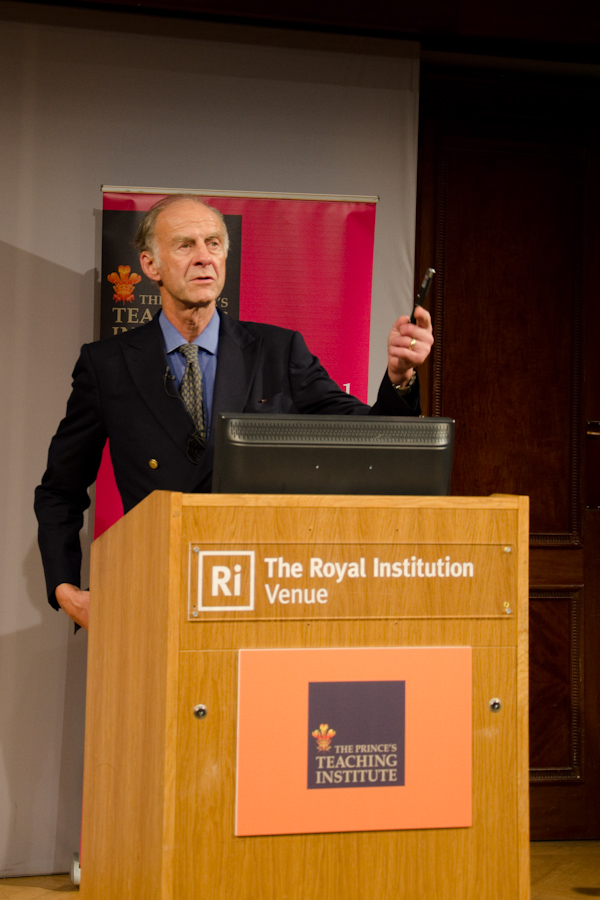
By Maymana Arefin
“I don't waste time having regrets," – these were the words of a man who has explored the farthest reaches of the globe in a test of resilience and human endeavour. Last month, Sir Ranulph Fiennes delivered the PTI Annual Lecture to 440 students and their teachers who attended from schools across the country to draw inspiration from his remarkable story.
As the first person to completely cross the Antarctic continent unsupported and the oldest Briton to have reached the summit of Mount Everest, it is difficult to overstate the wealth or enormity of Fiennes’ endurance records. And yet, as he recounted his experiences to a captivated audience at the Royal Institution in London, there was something immediately relatable on a personal level to those who attended. A take-home message that resonated with both teachers and students alike was that to follow through with one’s goals, to overcome obstacles and continue despite setbacks, is always admirable, whatever goal that might be.
And though Fiennes may have lost fingertips and the top of his thumb when frostbite was at its harshest, his sharp wit and dry sense of humour have remained very much intact. Stomachs turned when photographs of the explorer’s injuries were presented to the audience: skin peeling off extremities and the grim reality of travelling in sub-zero temperatures revealed. It became clear that the physical pain Fiennes and his team-members endured was only made possible through their unwavering mental strength and commitment to an end-goal. Of course, Sir Ranulph joked that the real driving force for him was competition with their ‘Norwegian friends’ who would undoubtedly have beaten him to it if he had stopped for a break.
A pertinent question, particularly for young people who may look to Sir Ranulph as an unconventional hero – an antidote to an age of instant fame and gratification – how did he get here? Having been thrown out of the British Army due to lack of A-Levels at 24 years old, Fiennes spoke earnestly about the value of education as a means to sculpting a path and career which he was unable to access. Behind every hero, he explained, there is an even stronger individual driving them to success, and in his case, this was certainly his wife and best friend Ginny. They began making a living together teaching soldiers how to climb and ski in Germany but before long this blossomed into projects far beyond the scope of what others had done before them.
Sir Ranulph fondly described the instance that Ginny sent him to the library to map the best route around the world for their first expedition. Having researched the idea all day, he found that this had not been achieved by even the world’s greatest experts so told his wife that it was a stupid idea. “She became quite unpleasant so I therefore went back to the library”, he recalled. It is astonishing to look back at the humble beginnings of this couple who sat at breakfast with a crayon each morning, plotting their routes onto a tiny model globe.
In the pursuit of excellence, there will always be obstacles to overcome. Sir Ranulph’s expeditions were not always successful, and the risks of ‘living dangerously’ were not nearly as glamorous as they appear on paper. Instead, his experiences serve to illustrate the strength of human spirit in the most unlikely of circumstances. In the same way, students and teachers are navigating their way through unforeseen challenges in education, even when it may feel like an uphill struggle. And who better to stand testament to the importance of determination in the face of adversity than an explorer who undertook seven marathons in seven days on all seven continents after a double bypass operation just four months earlier.
